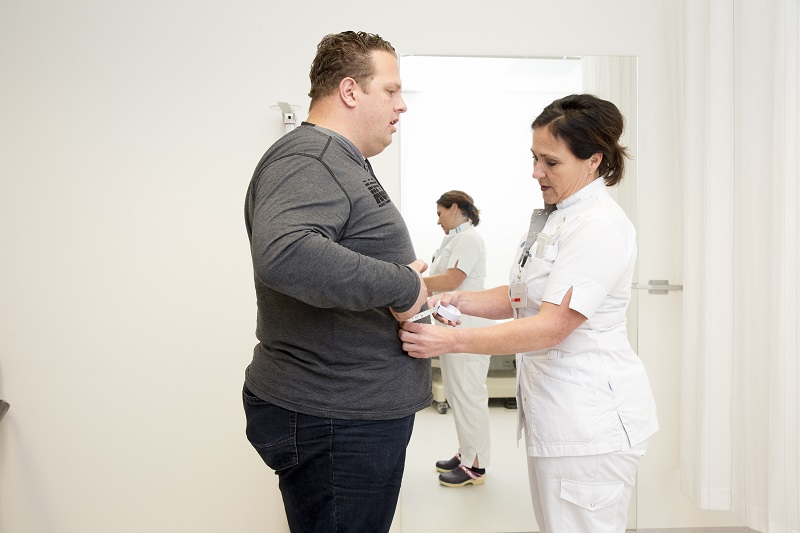Bariatric surgery in patients with morbid obesity changes the composition of the intestinal flora
In people with morbid obesity who undergo a crash diet, the diversity of the intestinal flora (microbiota) is temporarily reduced. When these patients subsequently undergo bariatric surgery (stomach reduction), the intestinal flora recovers over time with a composition similar to that found directly 1 week after the surgery. According to investigators, such a “healthy” composition of the intestinal flora may contribute to weight loss in people with morbid obesity after bariatric surgery.
Bariatric surgery is the only proven effective long-term treatment in people with morbid obesity. It is known that people with morbid obesity have a different intestinal flora composition than people with a normal weight. However, details of these differences and their interpretation have not been properly investigated.
Composition of the intestinal microbiota
With the help of 16S rRNA gene sequencing, it is possible to determine which bacteria are present in a given sample and in what quantities. Investigators from the Utrecht Exoposome Hub (in which also the department of Medical Microbiology at UMC Utrecht is involved) studied the changes of intestinal microbial communities in faecal samples in 45 morbid obese patients who underwent a crash diet followed by bariatric surgery at UMC Utrecht or the Catharina Hospital in Eindhoven.

The analysis showed that immediately after the crash diet and the first week after surgery, fewer bacterial families were present in the intestinal flora. Although the number of bacteria families was back to normal again 6 months after surgery, the composition of the gut microbiota was permanently changed, something which was already observed 1 week after the surgery. Some bacterial families (e.g. Streptococcaceae and Enterobacteriaceae ) had a permanent increase in abundance, while others (e.g. Bifidobacteriaceae) had a decrease in abundance.
Investigator Dr. Fernanda Paganelli explains the relevance of the findings: “The rapid decrease in the diversity of bacterial families after the crash diet indicates severe stress on the gut microbiota due to the catabolic condition of the patients. The permanently changed composition of the intestinal microbiota already observed shortly after bariatric surgery is probably a reflection of the adaptation of the microbiota to the anatomical and physiological changes that patients have undergone and may represent one of the key factors why this surgical procedure results in substantial and durable weight loss.”
Morbid obesity
People who are seriously overweight (morbidly obese) have an excess of body fat that goes beyond the limit of a healthy body weight. A person is seriously overweight with a BMI ≥40 kg/m2. Morbid obesity is a major health problem and leads to an increased risk of circulatory disease, high blood pressure, diabetes, joint problems and sleep apnea. Figures from Statistics Netherlands show that >100,000 adults in the Netherlands are morbidly obese.
Reference
Paganelli FL, Luyer M, Hazelbag CM, Uh H-W, Rogers MRC, Adriaans D, et al. Roux-Y gastric bypass and sleeve gastrectomy directly change gut microbiota composition independent of surgery type. Nature Scientific Reports 2019;9:10979
